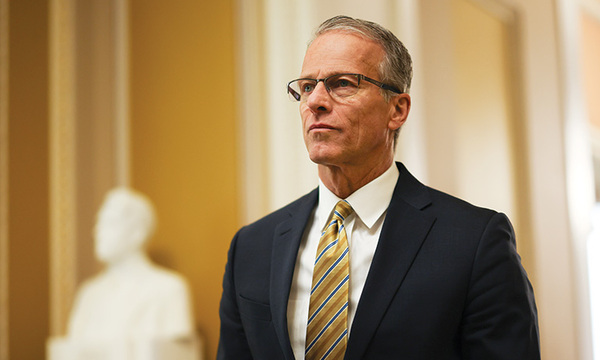For several years, I’ve interacted with the University of Chicago evolutionary biologist Jerry Coyne. Coyne doesn’t like me, and I can’t really blame him for that. He’s an atheist who thinks that Darwin’s theory of natural selection solved the problem of biological complexity, at least in principle, whereas I am a Christian who thinks that life is best understood as the product of intelligent design by a divine Creator.
Nevertheless, despite our differences, and his obvious antipathy for me, I am fond of Coyne. Like me, he loves cats, delicious calorific food for which one needn’t apologize, such as barbecued ribs, and classic rock. I wish I could say the same, however, for Coyne’s view of how scientific evidence and belief in God intersect.
Recently, Coyne published a book, Faith Vs. Fact: Why Science and Religion Are Incompatible, in which he argued that the scientific outlook — with features such as weighing publicly available evidence, testing one’s theories against nature and revising them in the light of contrary data — is really only compatible with atheism.
Yet Coyne also argues that he does not hold his atheist worldview dogmatically. Should the right evidence come along, he says, his atheism could be overturned. Should the right evidence come along, he says, his atheism could be overturned. Now, to read that in FvF was encouraging. No one wants to participate in a debate about origins where the evidence has been rendered irrelevant, making any hope of persuasion impossible.
But reading further into Faith Vs. Fact revealed a philosophical magic trick concealed in Coyne’s apparent open-mindedness to the power of evidence. It’s a trick worth analyzing in detail, because the move takes away with one hand what was apparently offered with the other. Here’s how the trick works, separated into its three major steps. Watch carefully.
1. Reject the doctrine of methodological naturalism.
Chances are if you’re an atheist, your audience will expect you to endorse methodological naturalism (MN). MN holds that science may explain using only undirected physical or material causes. No appeals to God’s agency are allowed. To quote Harvard biologist Richard Lewontin, we “cannot allow a Divine Foot in the door.” MN is thus a fundamental ground rule of science.
Coyne disagrees, rejecting this absolute form of MN. “Lewontin was mistaken,” he writes. Although we haven’t yet seen that Foot, we might. “We can in principle allow a Divine Foot in the door,” Coyne acknowledges — so MN cannot govern science in every aspect. A surprise turn like this throws your audience off balance.
2. Specify the evidence for God that you would accept.
Coyne grasps that there’s little point in allowing the possibility of evidence for God’s existence if one cannot describe what evidence would suffice. So he offers some candidates. “If, for example, supernatural phenomena like healing through prayer, accurate religious prophecies and recollection of past lives surfaced with regularity and credibility, we might be forced to abandon our adherence to purely natural explanations,” he writes.
Seems open-minded, right? Next comes the critical step — and here is where the rabbit of evidence for God disappears into Coyne’s philosophical hat.
3. Say that any explanation invoking divine action is a God-of-the-gaps.
Let’s say we have some longstanding puzzle, such as the origin of life, which many theists see as evidence for God’s existence (that is, the complexity of the first cell requires a non-physical cause with purpose, creativity and the power to bring into existence information-bearing molecules such as DNA). Why isn’t this evidence for God?
Because, Coyne contends, “science” — by which he actually means applied materialism or naturalism — must never be foreclosed by hasty appeals to divine action, or to God-of- the-gaps explanations. What is more likely, he asks, “that these are puzzles only because we refuse to see God as an answer, or simply because science hasn’t yet provided a naturalistic answer? ... Given the remarkable ability of science to solve problems once considered intractable, and the number of scientific phenomena that weren’t even known a hundred years ago, it’s probably more judicious to admit ignorance that to tout divinity.”
Master this conjuring trick, and one can’t lose. No matter how remarkable the evidence for God’s action might be, either in cosmic history or today, one can always make that evidence disappear into the bottomless bag of “the God of the gaps” objection.
Calling Trickery What It Is
There’s a simple reply to this sleight of hand. If God is a real cause, he may have left “gaps” in the natural order as his signature. These gaps — call them designed or created discontinuities — won’t go away, or be dissolved into strictly material or physical causes. The discontinuities exist, not because of the incompleteness of our scientific knowledge, but rather because they are real markers left in the world, indicating the handiwork of a divine intelligence.
Science as a genuinely open enterprise, where all the causal possibilities, including design, are on the table for discussion, must consider that we can discover and map these discontinuities. Coyne shouldn’t pretend that he’s truly weighing the evidence for God’s existence if he intends to sweep everything puzzling to materialism into his magician’s bag.
Science — not to mention philosophy and theology — deserves better.
Paul A. Nelson is an adjunct professor in ČŐČŐĹöşÝşÝÔęľĂľĂÔę2023’s Master of Arts in Science and Religion program. He is also a fellow of the Discovery Institute and has a Ph.D. from the University of Chicago in the philosophy of biology and evolutionary theory.
 ČŐČŐĹöşÝşÝÔęľĂľĂÔę2023
ČŐČŐĹöşÝşÝÔęľĂľĂÔę2023



